#georges minois
Explore tagged Tumblr posts
Text

Romer Kitching - La lettre (2018)
L’Homo communicans, branché en permanence, s’imagine qu’il est merveilleusement ouvert aux autres, alors même que sa communication est dénuée de substance. Au lieu de se communiquer, il communique le plus souvent du vide, et se réduit ainsi à l’état de simple caisse de résonnance. Victime du climat ambiant qui diffuse le mot d’ordre magique : communiquez pour ne pas être seul… même si vous n’avez rien à communiquer : « On veut nous faire croire que notre sentiment de solitude proviendrait d’une déficience de communication, qu’on pourrait escamoter la solitude en nous remplissant d’informations, de musique, de consommation, de communication… », écrit Marie-France Hirigoyen. Il ne s’agit plus de communiquer quelque chose, mais de communiquer tout court. Sous la pression sociale, qui en fait une quasi-obligation morale, l’homme d’aujourd’hui, dit Michel Hannoun, « veut 'com-mu-ni-quer', sans plus se demander ce qu’il veut communiquer. La communication produit forcément de la solitude à partir du moment où communiquer n’est plus un verbe intransitif. […] Communiquer n’est donc plus transmettre quelque chose à quelqu’un, c’est simplement être en relation avec quelqu’un. On ne veut plus rien dire à l’autre. On veut simplement être avec lui. […] Celui qui communique pour communiquer et celui qui ne parvient pas à le faire sont égaux au départ devant la solitude née du besoin d’une présence. Ils ne le sont plus dans la possibilité de satisfaire ce besoin. Tous les hommes sont seuls, mais certains sont plus isolés que d’autres ».
- Georges Minois, Histoire de la solitude et des solitaires.
#painting#romer kitching#peinture#solitude#georges minois#reseaux sociaux#communication#english art#english artist#english artists
5 notes
·
View notes
Text
HAPPY BIRTHDAY TO @bitter-sweet-coffee 's EBOY GEORGE!
Everyone go wish he a happy birthday. Sweet pupper with the BIGGEST EYEBALLS. 🥺
(I scheduled this post so it would post on 4/20 for me and on his birthday for him so he can be a weed dog for an hour, as a treat. 😎)
8 notes
·
View notes
Text
Il progresso umano ha liberato il pensiero,
ma allo stesso tempo ha incrementato l'angoscia di questo pensiero che si ritrova solo con se stesso,
solo e libero.
Da qui il malessere,
mal di vivere che un tempo solo le menti eccezionali conoscevano,
e che oggi coinvolge intere folle.
-Georges Minois

12 notes
·
View notes
Text




Hi, Tumblr !
The cardiology internship ended and the infectious disease internship began. I'm disappointed, I expected the infection to be cooler. But it's a lot of slides, showing Irisipelas and some weird diseases (apart from that you have to know a lot about immunology and I hate it). In addition to medicine, I am reading "The History of Suicide", by George Minois. I think it's really good, it's a mix of historical references and literary references. I think it's beautiful. Did you know that in the Middle Ages, an ordinary peasant who committed suicide was often buried upside down with a north-south orientation, instead of the normal west-east orientation, a position favorable to the resurrection, which would come from the east. Crazy. Anyway, May is being interesting, although some internal demons are agitated lol let's continue (;
Photo 1: This is phlegm.
Photo 2: Setting up my lesson on the Hundred Years' War (which didn't last a hundred years).
Photo 3: Are you in psychological distress? Consult the tarot (contains irony)
Photo 4: "Life is a story told by an idiot, full of sound and fury, without any meaning."
8 notes
·
View notes
Photo

OUVRAGE | Charles Martel, par Georges Minois ➽ https://bit.ly/Ouvrage-Charles-Martel Plus qu'une biographie au sens moderne du terme, ce « Charles Martel » est une esquisse, une tentative de reconstitution de sa vie à partir des infimes fragments retrouvés et replacés dans leur contexte, un peu comme le paléoanthropologue reconstitue un squelette mérovingien à partir de deux ou trois vertèbres, d'une mâchoire et d'un bout de tibia, enfouis avec quelques bijoux et objets familiers
3 notes
·
View notes
Text
Hinter dem Trump-Attentat
katholisches.info: Von Roberto de Mattei* Politische Verbrechen kennzeichnen nicht nur die amerikanische Geschichte, in der innerhalb von hundert Jahren vier Präsidenten ermordet wurden, sondern sind im Westen Teil der Geschichte der Macht. George Minois, ein französischer Historiker, der diesem Thema ein Buch gewidmet hat („Le couteau et le poison. L’assassinat politique en Europe (1400–1800“), Fayard, Paris ... http://dlvr.it/T9k2M3
0 notes
Video
vimeo
Three - Phones Are Good from Ian Pons Jewell on Vimeo.
Production: Friend London Director: Ian Pons Jewell Executive Producer: Luke Jacobs Producer: Jon Adams Director of Photography: Mauro Chiarello Production Designer: Mark Connell Costume Designer: Ameena Callender Service Company: Radioaktive Film Casting: Kharmel Cochrane Storyboard: Oliver Harud
Agency: Wieden + Kennedy London Creative Director: Hollie Walker Creatives: Tom Bender, Tom Corcoran Executive Creative Directors: Iain Tait, Tony Davidson TV Producer: Richard Adkins TV Production Assistant: Aran Patterson
VFX: Time Based Arts VFX Supervisor: James Allen VFX Head of Production: Josh Robinson VFX Production Assistant: Sean Ewins Lead VFX Artist: Luke Todd Flame Artists: Matt Jackson, Leo Weston, David Birkhill, Stephen Grasso, Jamie Crofts Nuke Artists: Leandro Vazquez, Matt Shires, Bernardo Varela, Sarah Breakwell, George Cressey, Ralph Briscoe, Manolo Perez CG Artists: Oscar Diez, James Spillman, Mike Battcock, Jon Park, James Mann, Nigel Timms, Daniel Davie, Gareth Bell, Cesar Eiji Nunes, David Loh, Michael Hunault, Federico Guzzardo, Florian Mounie, Dan Hope Matte Painters: Lisa Ayla, Sylvie Minois Colorist: Simone Grattarola
Edit: Cut & Run Editor: Ben Campbell Edit Assistant: Chris Hutchings Edit Producer: Ruth Minkley
Sound Company: 750mph Sound Designer: Sam Ashwell, Jake Ashwell Sound Producer: Mary-Ann D���Cruz
Music Supervisor: John Connon @ Mr. Pape
0 notes
Quote
Se lancer dans la solitude en étant insuffisamment préparer, c'est aller à la catastrophe. Ce n'est pas la solitude qui rend parfait, c'est la perfection qui rend capable de supporter la solitude.
Georges Minois, Histoire de la solitude et des solitaires.
11 notes
·
View notes
Text

1 note
·
View note
Quote
Minden emberi lény, aki gondolkozni kezd, potenciális pesszimista.
Georges Minois: Az életfájdalom története (A melankóliától a depresszióig)
0 notes
Text
Just tried to read some book only to realize that it push the narrative of the red hot poker myth being an historical fact, lowkey implied that Edward II was having affairs with both the younger and the elder despenser, claimed that Henry VI went mad because of too much christianity and was also lowkey highkey islamophobic. This thing was published in 2016 so you know, that’s fun.
#georges minois is offically on my ennemy list smdh#the henry vi left a particularly bad taste in my mouth because minois is clearly a militant atheist and it just felt really in poor taste#anyway it legit felt like this whole book was designed to piss me off
0 notes
Note
If you could recommend Dan any comedians (or media) to study who/what would you choose? Like things that might help him improve his craft? Not in a mean way just in a honing his skills type of way. A little homework as a treat.
you have no idea how much you're indulging me with this right now, but let's fucking gooooo
i honestly think dan is well-versed in comedy and having the experience he's currently having with touring his comedy material is only gonna help him (even if it's mainly to an audience that already likes him), so in general i think he's on the right track, so the things i say here are way more for people who are interested in comedy in general than about what i think dan should do, but i will mention some stuff related to him just to further contextualize his comedy.
what i would recommend anyone that is interested in comedy (not only as a career path but as a genre, a study subject, etc) would be getting into theory to understand some of the whys and hows of comedy.
i wrote my undergraduate thesis on comedy (and i got an 100% score 🤓) and as torturous as writing a thesis can be, reading and learning more about comedy through an academic lens was extremely exciting, which is why i recommend diving into the different theories and theorists and how comedy is perceived in different historical contexts.
under the cut i put some more thoughts and recommendations to learn more about comedy:
There are several theories that try to explain what is comedy, humor, why we laugh, etc. but I try to narrow it down to 3 main ones: Incongruity, Superiority and Relief.
Although I have not read ALL of them ENTIRELY (some of these I've only read the bits that helped my thesis), for pure theory I recommend some of the work I used for my own research:
• Poetics by Aristotle
• Laughter: An Essay on the Meaning of the Comic by Henri Bergson
• Humour by Terry Eagleton
• Essays on Poetry and Music by James Beattie
• Humor by Sigmund Freud (Yup. That guy)
• Jokes and Their Relation to the Unconscious by Sigmund Freud
• Human Nature by Thomas Hobbes
• Leviathan by Thomas Hobbes
• On Humor by Luigi Pirandello
• Histoire du rire et de la dérision by Georges Minois (I couldn't find an English version of this book online, but it's available in French and Portuguese)
Another way to be exposed to some theory without a lot of effort is by watching Nannette by Hannah Gadsby because she quite directly addresses Incongruity and Relief in that special. I also think it's a good experience overall, so even if you don't wanna learn about comedy, go ahead and watch Nannette.
When it comes to comedy as a tool for social change (which I see as an important aspect of comedy, and I believe that is also a goal for Dan's journey with comedy) I recommend the following (especially the first one):
• A funny matter: toward a framework for understanding the function of comedy in social change by Caty Borum Chattoo
• Storytelling for Social Change: leveraging documentary and comedy for public engagement in global poverty by Caty Borum Chattoo & Lauren Feldman
• Why stand-up matters by Sophie Quirk
When it comes to mental health, a big topic in Dan's comedy, needless to say Bo Burnham is a great source for that kind of material, but the truth is many comedians (big names and beginners) are talking mental health nowadays in their work, so there is a lot of work to explore out there. But I recommend watching Laughing Matters, a short documentary featuring several comedians talking about their mental health and their careers in comedy, and John Mulaney's part on Netflix's The Hall: Honoring the Greats of Stand-Up where he talks about Robin Williams. These works help demystify that terrible myth that in order to be a comedian or seek comedy you have to be some sort of tortured soul, that whole idea of "my trauma made me funny", etc. Still kinda on that line of mental health but a bit more, like, autobiographical, which is kind of the line where Dan is going, I feel like Nannette, as previously mentioned, is a good one and so is Rothaniel by Jerrod Carmichael (HBO Max). Although most comedians will do kind of autobiographical work, I think these two just kind of hit closer to where Dan is aiming.
To understand more comedy from the POV of comedians themselves I recommend any podcast on comedy like Comedy Bang Bang, You Made It Weird, Conan O'Brien Needs A Friend, etc. and listening to episodes featuring comedians you like. I think having a favorite comedian and watching anything by them where they talk about their journey with comedy can make this easier. Comedians In Cars Getting Coffee is also this great window into this world of comedy and the way these comedians see their craft and their journeys (fair warning about this show and, honestly, getting into comedians in general: many people here are talented but suck ass as people. Consume their work at your discretion).
For me, I love John Mulaney as a comedian, so I tend to favor his views on comedy and I find that his interview with Larry King in 2018 is quite a great way to see his understanding of performing comedy and his own role in it. I also like Robin Williams, Bill Hicks, Julio Torres, George Carlin, Patti Harrison, Maria Bamford, Jerrod Carmichael, Joel Kim Booster, and many more. But honestly, my main reference is John Mulaney, and most of my comedy knowledge comes from the US comedy, so I do think having a niche helps.
You may like British comedy better, or maybe you enjoy comedy from your country better, or maybe you just don't get physical comedy at all, or you can only feel alive when you consume cringe comedy, etc. I like comedy a lot but I'm not into every kind of comedy in the same way. But I would say that being exposed to as many different kinds of comedy, formats and comedians as possible can be very positive because there's so much to learn from any well-done joke, y'know?
For me, one type of comedy that feels indispensable to any performer is improv comedy. The "yes, and..." mentality is essential to anyone going on stage and facing an audience. And to anyone writing comedy, being given a random situation and not escaping from it but learning to expand it is essential. And, honestly? Just regular living can be improved with some improv. So, obviously: Whose Lines Is It Anyway? is a good way to start there (I favor the older ones but that's because I ferociously consumed every 90s-2000s episode of the US WLIIA when I was a teenager). If you're Brazilian, Improvável by Barbixas is a great way to start as well with almost endless content to explore.
And, honestly? Any video essay on comedy, comedians or comedy media you enjoy. We all love a good video essay. I like:
• How Nathan Fielder Undresses People by Nerdwriter1
• The Power of Storytelling: John Mulaney by PhilosoFun
• The Hidden Formula Behind Almost Every Joke on Late Night by Slate
• Efficiency in Comedy: The Office vs. Friends by Drew Gooden
• The Death of Laugh Tracks by Drew Gooden
• Is SNL Even Funny? by Drew Gooden
• I watched one SNL episode from every season by Drew Gooden
(What I mean here is that Drew Gooden needs to make more video essays on comedy, please.)
Oh, another thing that is really important is delivery. I will, once again, bring up John Mulaney because I think his delivery is phenomenal. The Salt and Pepper Diner is a masterclass on comic delivery, I believe. I mentally quote "Hey, November Rain is over! ... No, it's not. There's more." all the time. Which brings me to another point, listen to stand-up albums. I love watching a good stand-up special but audio makes you really appreciate the delivery of the joke. The comedian has to convince you they're worth of your time with their ability to get a joke out of their brain into the world with no help of visuals. It helps you understand that comedian's comic voice. And I think John Mulaney does that really well.
Of course there is a variety of different comics with different deliveries to also be impressed by: Dan Mintz and Nathan Fielder have kind of similar styles of voices but their humor is kind of different. Leslie Jones, Pete Davidson, Conan O'Brien, Katt Williams, Bo Burnham, Julio Torres, Daniel Sloss, Ali Wong, Katherine Ryan, Hannah Gadsby, Wanda Sykes, Tig Notaro, Chris Rock, etc, they all have different ways to speak, but they know how to work their rhythm well enough to land their jokes the right way. You gotta find your own rhythm.
And I think a final thought is: authenticity. Not that you have to give 100% of yourself all of the time. You can tweak stories, enhance certain situations, hide things, not tell the full truth, you can even straight up LIE, and all that. but you gotta make it believable. An audience that senses a lack of authenticity, won't be entertained for long. If you're not explicitly coming in with a fictional character, your audience will be seeking your essence. Your comedy is a reflection of you. So whatever you say, whatever part of your life you decide to expose, whatever vision you share, your audience is associating that to you. You're not just a medium from where the jokes come from, you are it. Which is why you can't just tell a joke because you think it will be funny, you gotta tell it because it's honest to you, to your beliefs, it resonates with you. You have to understand that the audience will see that joke as an expression of yourself.
See why Dan's joke about not washing his feet back-fired? He either picked something unauthentic to him - according to him he just chose a random example - or he did pick something authentic to him but, like many comedians do, backed out once he got called out. He had the choice of running with it, owning the joke but he backed out. And if he's honest when he says he just chose a random example, then he made the mistake of not being authentic to his own beliefs when telling a joke.
In the endddd, my favorite way to learn about comedy is by watching comedians talk about comedy. And comedy is too rich of a field to be explored only through the academic angle, or one theorist's point of view so having people who live and breathe comedy talk about it is a great source of knowledge. That's one of the reasons why in my thesis, when I explained the theories of comedy, I didn't just quote theorists, I also quoted comedians.
Final thoughts: just, y'know, be yourself. Have fun. Don't joke about not washing your feet if you don't want people to think you don't wash your feet, etc. And most importantly, punching up will always be the best way to use your craft for the better.
If you read until here, why the fuck would you do that? But thankssss. <3
37 notes
·
View notes
Text
2023 Reading Log, pt. 3
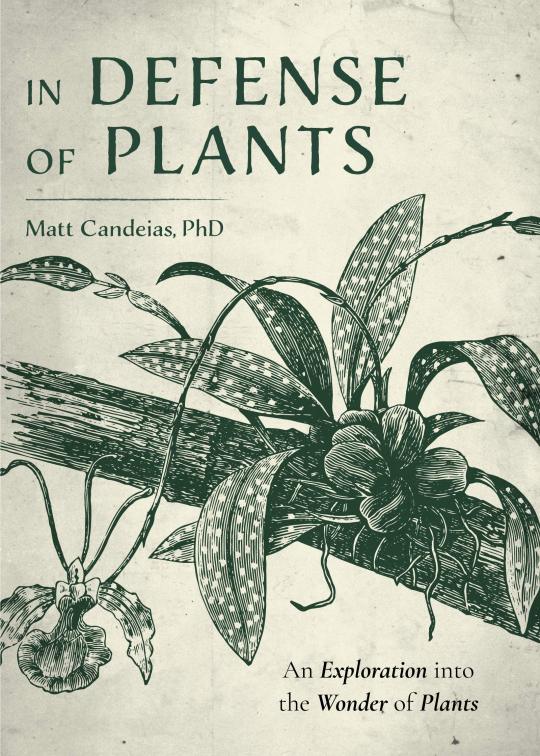
011. In Defense of Plants by Matt Candeias. Another podcast to book, this one about plant evolution and ecology. There’s some autobiography here, about how the author’s experiences in restoration ecology gave him an appreciation for plants, and some of his own endeavors making gardens of native species. Chapters cover themes like pollination, seed dispersal, competition, carnivory and parasitism. My issue with the book is not with its content, but its production. There’s enough typos to be distracting, but worse is the approach to pictures. There are a fair amount of photos in the book, but they’re converted from color to black and white on low quality paper. I would have gladly paid a few more dollars for a book where I could tell what the figures are supposed to be.
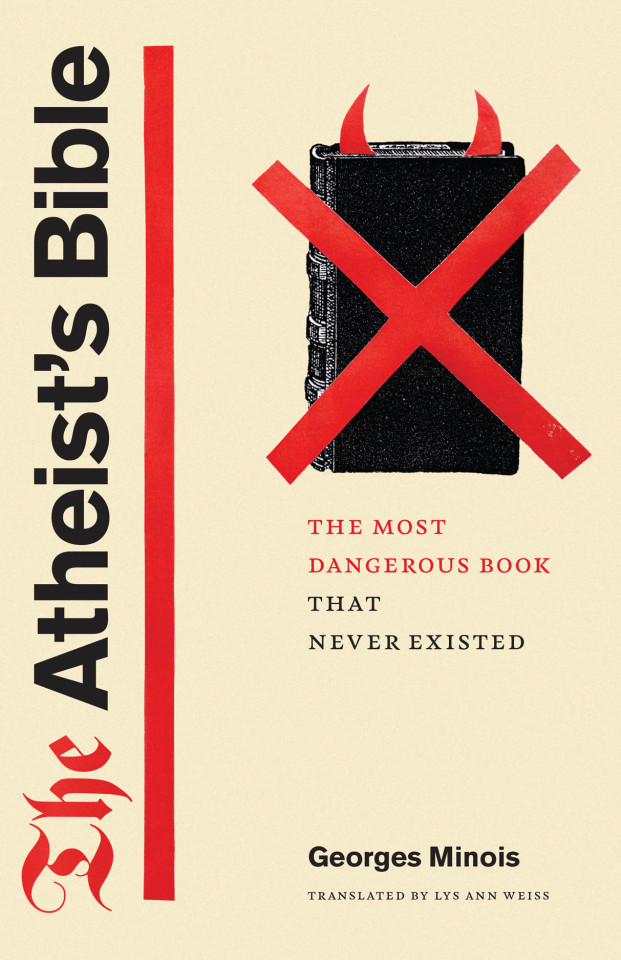
12. The Atheist’s Bible: The Most Dangerous Book that Never Existed by Georges Minois, translated by Lys Ann Weiss. This is the biography of a book: the Treatise on the Three Imposters. This book, which argues that Moses, Jesus and Mohammed were all frauds who sought personal gain by inventing religions, did eventually exist. In fact, there’s two different versions of it. But it existed as a scandalous rumor for literally centuries before anyone bothered to write it. The author traces its origins as a weapon of papal propaganda, the history of atheist and pantheist thought in Europe as it developed from the Crusades to the Enlightenment, and provides hypotheses for the origins of both versions of Three Imposters and summaries of their contents. One of the noteworthy things about this book is that the author is not a neutral party. He is openly, aggressively, atheist, and pretty much agrees with the thesis of the Three Imposters. The book was originally written in French, and in the introduction he laments how continental Europe is still in thrall to Christendom, as opposed to the more sensibly atheist Anglosphere. I’m not sure I buy either half of that.
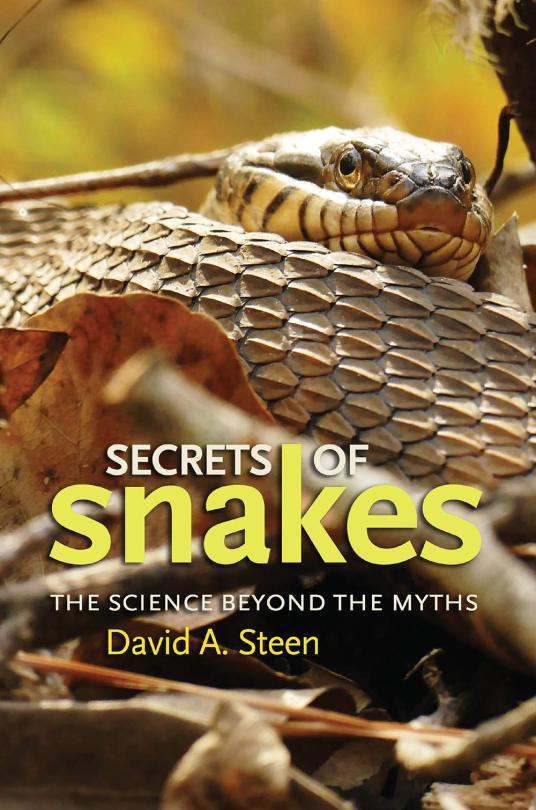
13. Secrets of Snakes by David A. Steen. Steen is a wildlife biologist who is active on Twitter (the dedication even uses the phrase “danger noodles” to refer to venomous snakes). And this book is a Q&A derived from his outreach efforts, teaching people that snakes are not monsters and would rather be left alone. The geographic focus of the book is the American Southeast, and copperheads and cottonmouths make up the snakes that are most discussed. The book is well written and a breezy read. The photos are high quality. There’s some good anecdotes about Steen’s career and findings, and I did learn some things, but I feel like I’m not the target audience for the book. I already like snakes, after all, and don’t think of them as monsters.
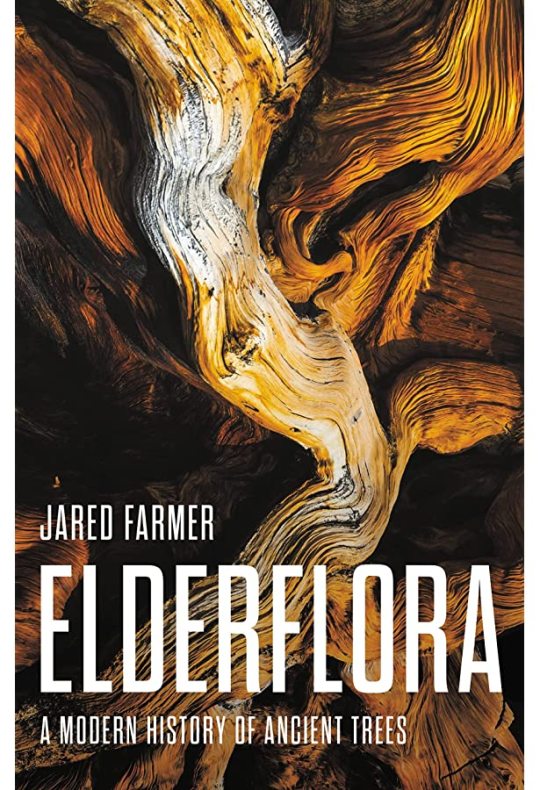
13a. Elderflora: A Modern History of Ancient Trees by Jared Farmer. Maybe I’ve been reading too many books about plants lately, because this didn’t grab me. The premise is talking about individual ancient trees, and how they are growing fewer and farther between due to agroforestry, but still have a cultural connection to people. The introduction talks a lot about how trees act as bridges between historical time and personal time. But I got maybe fifty pages in, and it didn’t really grab me. It’s not a bad book, but like I said, I’ve been reading a lot about plants lately, and this one doesn’t stand out from the pack. And I have so many other books gathering dust on my shelves that I’m more interested in. Like…
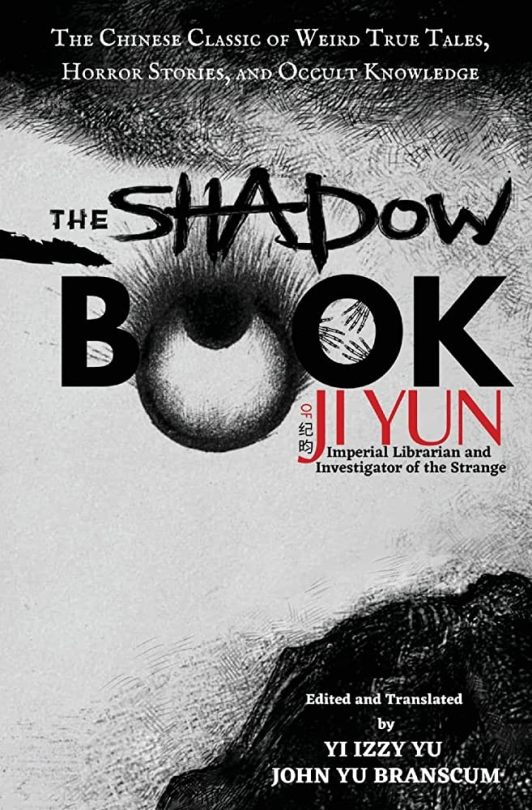
14. The Shadow Book of Ji Yun, edited and translated by Yi Izzy Yu and John Yu Branscum. Ji Yun was a bureaucrat in Qing dynasty China, whose memoirs include many tales of ghosts, psychic powers and other paranormal phenomena. This is a collection of the paranormal parts of his books, and it feels remarkably modern. Some of that is due to translation choices, I’m sure, but it takes references to servants, concubines and multiple wives to remind one sometimes that this wasn’t written in the 20th century along with books about UFOs and the Bermuda Triangle. Some of the writings are more intentionally fables, rather than being supposedly true life tales. For people looking for a good source on magical belief in China during the 18th century, or for people who are just looking for some spooky stories, this is highly recommended.
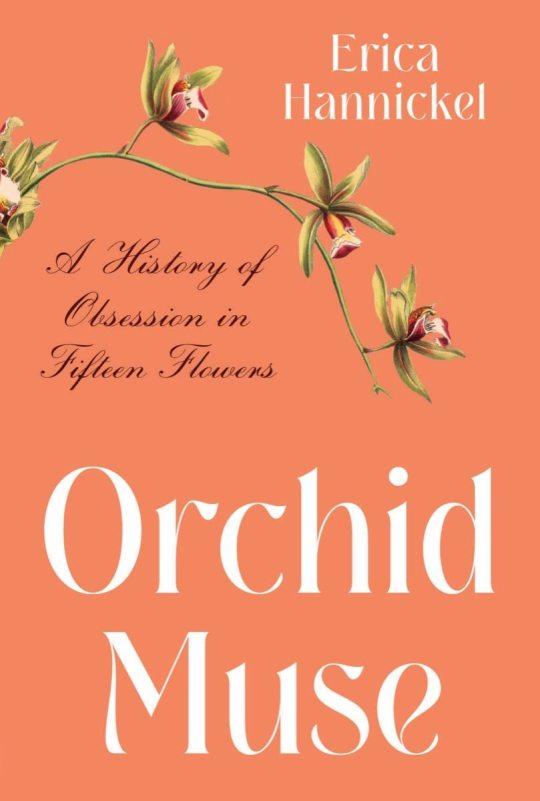
15. Orchid Muse: A History of Passion in Fifteen Flowers by Erica Hannickel. One last plant book before I put a temporary moratorium on them. I’m a sucker for “history of X in n Y” setups, I guess. What I was not expecting was for this book to approach orchids more from the horticultural perspective than from the biological perspective. Not a lot on their evolution and ecology, a lot on how to grow them at home. Each chapter profiles one or two people (occasionally a whole cultural movement) that were devoted to orchids, and the chapter ends with an infobox about how to best grow one of the orchids discussed. The book leads with its best material, talking about the quasi-erotic orchid poems of Erasmus Darwin. Some of the historical figures are people who I knew, but didn’t know about their orchid hobby, such as Frieda Kahlo and Raymond Burr. The book’s production values are lavish, which is appropriate for orchids, with high quality paper and lots of full color illustrations.
#reading log#botany#horticulture#orchid#plants#chinese folklore#atheism#religious history#trees#snakes
10 notes
·
View notes
Text
"Asıl günahkârların ihtiyacı vardır yaşamaya; tövbe etmek ve iyileşmek için."
-Georges Minois, İntiharın Tarihi
2 notes
·
View notes
Text
Joe Liebgott has a tattoo gun-Band Of Brothers headcannons

•No one is allowed to rat to Joe’s parents that their 17 year old bought a tattoo gun off Amazon.
•Joe for sure is already tattooing himself like a mad man.
•He tattoos David Webster. On his upper left thigh.
•David thinks that Joe has gotten out of hand.
•Till Joe convinces David to get a tattoo.
•David gets “Für alles, was wir verlieren (wie ein Du oder ein Ich), Es ist immer unser Selbst, das wir finden” tattooed on his ribs. (For whatever we lose (like a you or a me)It's always our self we find in the sea) (please don’t come for me if it’s wrong just have a talk with google translate)
•Except Joe makes a spelling error.
•David is not excited about this.
•When George Luz finds out about this tattoo gun. All hell breaks loose.
•George gets “Property of Joe Toye” tattooed on his lower back (yes like a tramp stamp)
•Toye is amused but is now scared that if they would ever break up what his boyfriend would do.
•George convinces Joe to tattoo “Georgie” on his wrist.
•Skip, Malarkey, and Penk all get matching poorly drawn cowboy sharks.
•Eugene gets a pentacle on his wrist and his zodiac sign next to it.
•Babe gets a Me Hoy Minoy on his leg.
•Speirs is super against it at first but breaks when Lip begs him to get matching small hearts.
•Nix was so excited to get a tattoo from Lieb. But Richard wasn’t.
•Spewing off facts about dirty needles.
•Joe insists that he keeps everything sterilized and safe.
•So Nix gets his dogs paw tattooed on his calf.
#band of brothers#david webster#joe liebgott#george luz#webgott#joe toye#luztoye#carwood lipton#winnix#easy company#richard winters#lewis nixon#donald malarkey#babe heffron#skip muck#alex penkala
68 notes
·
View notes
Text
Atheism Is Lit!: Atheist Literature
Dictionnaire des athées, agnostiques, sceptiques et autres mécréants by Georges Minois (The Dictionary of Atheists, Agnostics, Skeptics, And Other Miscreants)

2 notes
·
View notes